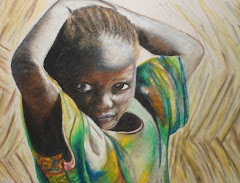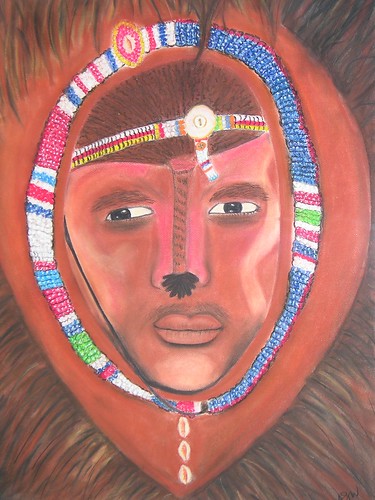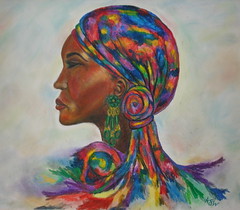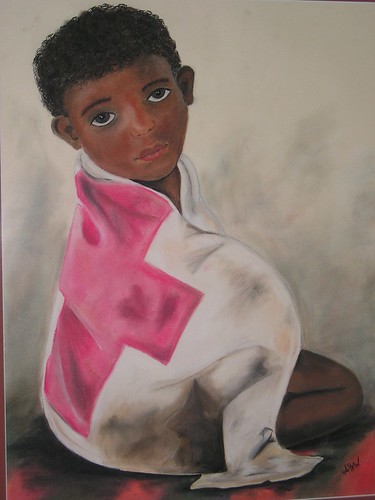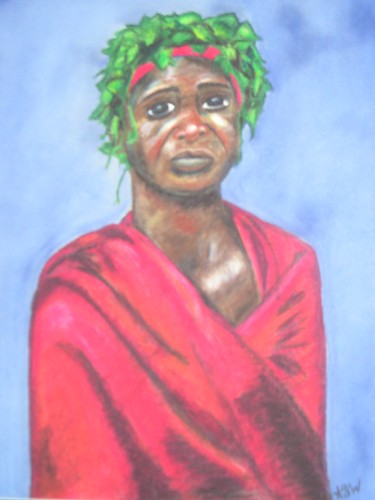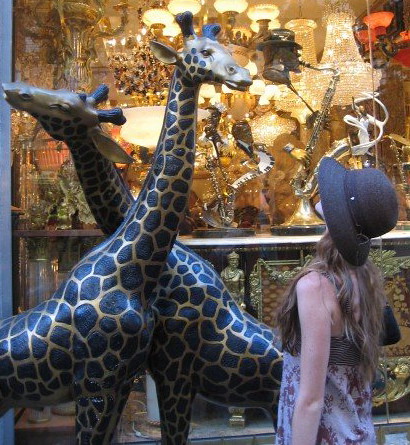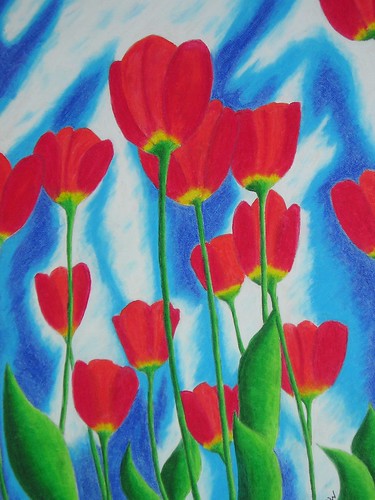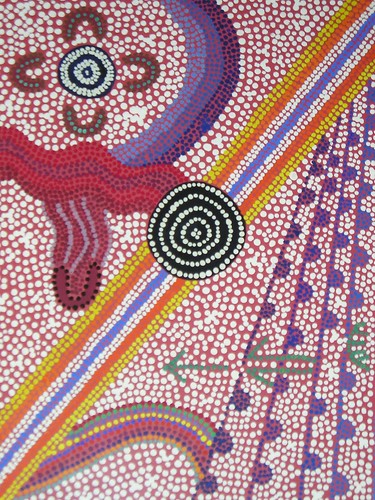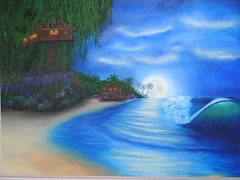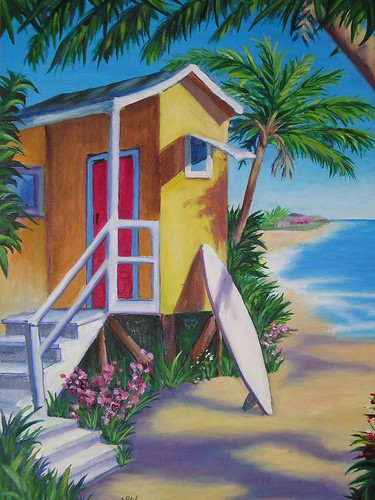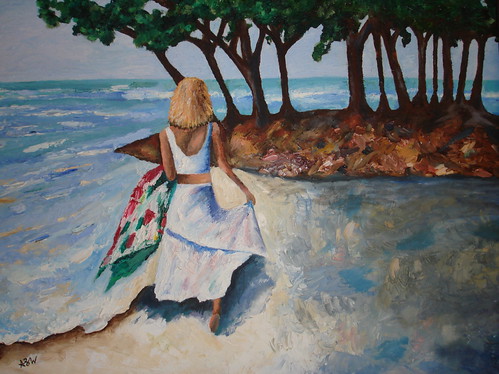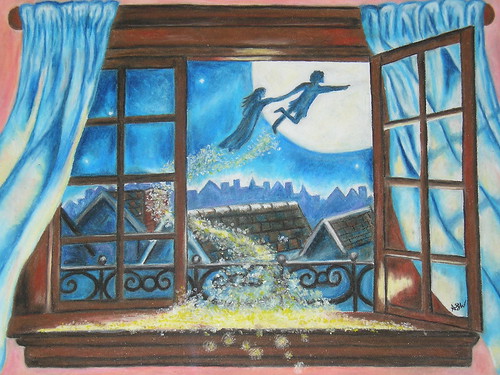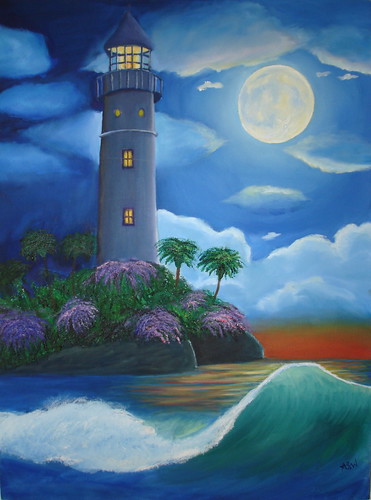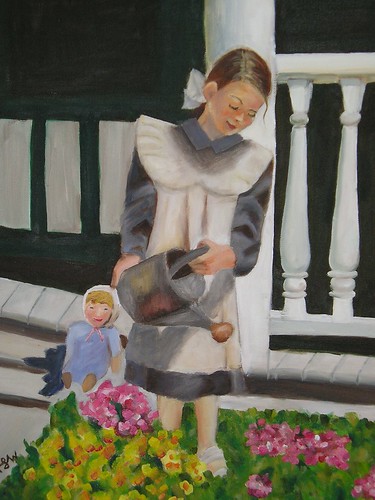BBC reports, that South African president, Thabo Mbeki is confident that mediation will produce a solution for the political crisis in Zimbabwe. (11/22/07)
The New York Times informs that "Congo has announced the establishment of a rain-forest preserve intended to shield the bonobo, one of human beings’ two closest ape relations, from wildlife poachers and deforestation". (11/20/07)
The Los Angeles Times writes about the rich culture of protestors in Zimbabwe, despite the constant risk of censorship or arrest from President Mugabe's regime. (11/19/07)
Sunday, November 25, 2007
Saturday, November 24, 2007
African Banking & Economic Growth
The Economist published an article on the 15th entitled “On the Frontier of Finance” which discusses the increased banking opportunities allowed by the continued boost in African economic growth. A main focus of the article was on the fact that most Africans do not have access to what we would consider basic and essential financial services. To better illustrate this point, The Economist lists some staggering yet somewhat unsurprising statistics…
• Only 20% of families in Africa have bank accounts.
• Private credit accounts for 18% of GDP in Africa
• Opening a bank account in Cameroon requires a minimum of $700 (more than many Cameroonians earn in a year)
• In Swaziland, a woman needs consent of her father, husband or brother to open an account or take out a loan.
• 75% of adults do not have a verifiable address
• Even in South Africa, where the financial sector is far more sophisticated, almost half of adults do not have bank accounts
The sustained increase in economic growth can be attributed in part to better economic management and also to an increase in overall political stability. This increase in stability in some African countries has also lead to more stable policies. The Economist reasons that these new policies are forcing banks to reach out to more customers while promoting access to financial services. In the mean time, technology has already helped to improve access. Recently, financial services have been offered over mobile phones in Kenya, Congo, and South Africa. “Subscribers can open accounts, check their balances, pay their bills or transfer money by typing a few commands on their mobile phones”. For more on mobile banking, check out the article, "A bank in every pocket".
Despite new technology and the new opportunities for Africa that come with sustained economic growth, African banking still has a long way to go. Africans lack confidence in local banks explaining why most private African finance is short-term or money is kept abroad. In addition, “Many African countries still have to develop and enforce policies and laws allowing banks to compete and operate more easily, while making sure they are financially solid—and customers are protected. In time, regional integration may help ease the problem of scale”.
Although it will be awhile before millions of Africans will stop 'storing their money under their mattresses,’ the economic growth in Africa has attracted a lot of foreign interest. “The Industrial and Commercial Bank of China, in the largest ever single investment in Africa, has offered $5.6 billion for a 20% stake in Standard Bank, of South Africa, which has operations in 18 African countries.” For more information on the Chinese involvement in Africa, try another article by the Economist: “Still Scrambling”.
• Only 20% of families in Africa have bank accounts.
• Private credit accounts for 18% of GDP in Africa
• Opening a bank account in Cameroon requires a minimum of $700 (more than many Cameroonians earn in a year)
• In Swaziland, a woman needs consent of her father, husband or brother to open an account or take out a loan.
• 75% of adults do not have a verifiable address
• Even in South Africa, where the financial sector is far more sophisticated, almost half of adults do not have bank accounts
The sustained increase in economic growth can be attributed in part to better economic management and also to an increase in overall political stability. This increase in stability in some African countries has also lead to more stable policies. The Economist reasons that these new policies are forcing banks to reach out to more customers while promoting access to financial services. In the mean time, technology has already helped to improve access. Recently, financial services have been offered over mobile phones in Kenya, Congo, and South Africa. “Subscribers can open accounts, check their balances, pay their bills or transfer money by typing a few commands on their mobile phones”. For more on mobile banking, check out the article, "A bank in every pocket".
Despite new technology and the new opportunities for Africa that come with sustained economic growth, African banking still has a long way to go. Africans lack confidence in local banks explaining why most private African finance is short-term or money is kept abroad. In addition, “Many African countries still have to develop and enforce policies and laws allowing banks to compete and operate more easily, while making sure they are financially solid—and customers are protected. In time, regional integration may help ease the problem of scale”.
Although it will be awhile before millions of Africans will stop 'storing their money under their mattresses,’ the economic growth in Africa has attracted a lot of foreign interest. “The Industrial and Commercial Bank of China, in the largest ever single investment in Africa, has offered $5.6 billion for a 20% stake in Standard Bank, of South Africa, which has operations in 18 African countries.” For more information on the Chinese involvement in Africa, try another article by the Economist: “Still Scrambling”.
Sunday, November 18, 2007
Beauty on Sunday 11/18
CNN reports that over 200 children who served with militias in the Democratic Republic of the Congo have been released and are being returned to their families. (11/17/07)
BBC reports that Mwai Kibaki, Kenya's president, has pledged to crack down on politically instigated violence to ensure a peaceful vote. (11/15/07)
Both The New York Times and BBC report on Africa's increase in economic growth. "The trend indicates that a fundamental change is occurring in Africa, a World Bank official told the BBC." (11/15/07 & 11/14/07 respectively)
The Los Angeles Times reports on a teacher in Somalia, Abdulkhadir Wasuge, whose mission is to "ensure that 'young people don't miss out' on a chance to learn and grow." (11/11/07)
BBC reports that Mwai Kibaki, Kenya's president, has pledged to crack down on politically instigated violence to ensure a peaceful vote. (11/15/07)
Both The New York Times and BBC report on Africa's increase in economic growth. "The trend indicates that a fundamental change is occurring in Africa, a World Bank official told the BBC." (11/15/07 & 11/14/07 respectively)
The Los Angeles Times reports on a teacher in Somalia, Abdulkhadir Wasuge, whose mission is to "ensure that 'young people don't miss out' on a chance to learn and grow." (11/11/07)
Sunday, November 11, 2007
Beauty on Sunday 11/11
CNN reports, Sudan has asked South Africa to help mediate on the violence in Darfur. (11/6/07)
BBC reports, "Two Tuareg leaders are to meet in Algiers to try to revive the peace process between Mali's government and the rebels in the north of the country." (11/5/07)
The L.A. Times reports on how self-taught artisans in Asmara (capital of Eritrea) are able to turn garbage into goods. (11/5/07)
The New York Times reports, "Sudan’s former north-south foes have agreed on steps to carry out a 2005 peace deal". (11/4/07)
BBC reports that South Africa is working on "going green". South African power giant, Eskom and the National Energy Efficiency Agency are working together on solar powered traffic lights. (11/2/07)
BBC reports on the first prisoner in Tanzania to be awarded a law degree. "I want to be like my father, I want to graduate," said his 23-year-old daughter, who was seven when her father, I want to graduate," said his 23-year-old daughter, who was seven when her father was jailed. (11/1/07)
BBC reports, "Two Tuareg leaders are to meet in Algiers to try to revive the peace process between Mali's government and the rebels in the north of the country." (11/5/07)
The L.A. Times reports on how self-taught artisans in Asmara (capital of Eritrea) are able to turn garbage into goods. (11/5/07)
The New York Times reports, "Sudan’s former north-south foes have agreed on steps to carry out a 2005 peace deal". (11/4/07)
BBC reports that South Africa is working on "going green". South African power giant, Eskom and the National Energy Efficiency Agency are working together on solar powered traffic lights. (11/2/07)
BBC reports on the first prisoner in Tanzania to be awarded a law degree. "I want to be like my father, I want to graduate," said his 23-year-old daughter, who was seven when her father, I want to graduate," said his 23-year-old daughter, who was seven when her father was jailed. (11/1/07)
Sunday, November 4, 2007
Beauty on Sunday 11/4
William Easterly in an L.A. Times article, What Bono doesn't say about Africa, refers to a portrait of Africa being painted by westerners: "It's a dark and scary picture of a helpless, backward continent that's being offered up to TV watchers and coffee drinkers. But in fact, the real Africa is quite a bit different."
Similarly, Uzodinma Iweala's in his article Stop trying to save Africa argues, "News reports constantly focus on the continent's corrupt leaders, warlords, "tribal" conflicts, child laborers, and women disfigured by abuse and genital mutilation."
While the focus of most top news stories about Africa is in fact negative, if you do some digging, it isn't too difficult to find news reports with a more positive outlook. As long as time and circumstances permit, every Sunday, i will post news reports and articles focusing on the progress and "beauty" in Africa.
Confucius said, “Everything has its beauty, but not everyone sees it.” I hope i can provide an opportunity to see some of the beauty in Africa...
The Washington Post reports, after 2 years of relative peace in South Sudan, the animal wildlife is returning to the region. "The reappearance of the elephants is one of the greatest symbols of southern Sudanese hopes for peace." (11/3/07)
BBC reports, chief negotiator of the Ugandan rebels, Martin Ojul releases a white dove in Kampala as a symbol of their commitment to peace. (11/1/07)
The New York Times reports, the Sudanese government declared a unilateral cease-fire at the opening ceremony of peace talks on Darfur which took place in Libya on Saturday, Oct. 27th. (10/28/07)
The Economist reports, Joaquim Chissano, a former president of Mozambique wins the first Mo Ibrahim Prize for Achievement in African Leadership. (10/25/07)
The L.A. Times reports that an experimental Malaria vaccine shows effectiveness among infants in Mozambique. (10/18/07)
 View of the market in Bamenda, Cameroon.
View of the market in Bamenda, Cameroon.
Photo taken from the VODECAM (Volunteer Development for Youth in Cameroon) office.
Saturday, June 16th 2007
Similarly, Uzodinma Iweala's in his article Stop trying to save Africa argues, "News reports constantly focus on the continent's corrupt leaders, warlords, "tribal" conflicts, child laborers, and women disfigured by abuse and genital mutilation."
While the focus of most top news stories about Africa is in fact negative, if you do some digging, it isn't too difficult to find news reports with a more positive outlook. As long as time and circumstances permit, every Sunday, i will post news reports and articles focusing on the progress and "beauty" in Africa.
Confucius said, “Everything has its beauty, but not everyone sees it.” I hope i can provide an opportunity to see some of the beauty in Africa...
The Washington Post reports, after 2 years of relative peace in South Sudan, the animal wildlife is returning to the region. "The reappearance of the elephants is one of the greatest symbols of southern Sudanese hopes for peace." (11/3/07)
BBC reports, chief negotiator of the Ugandan rebels, Martin Ojul releases a white dove in Kampala as a symbol of their commitment to peace. (11/1/07)
The New York Times reports, the Sudanese government declared a unilateral cease-fire at the opening ceremony of peace talks on Darfur which took place in Libya on Saturday, Oct. 27th. (10/28/07)
The Economist reports, Joaquim Chissano, a former president of Mozambique wins the first Mo Ibrahim Prize for Achievement in African Leadership. (10/25/07)
The L.A. Times reports that an experimental Malaria vaccine shows effectiveness among infants in Mozambique. (10/18/07)
 View of the market in Bamenda, Cameroon.
View of the market in Bamenda, Cameroon.Photo taken from the VODECAM (Volunteer Development for Youth in Cameroon) office.
Saturday, June 16th 2007
Subscribe to:
Comments (Atom)


